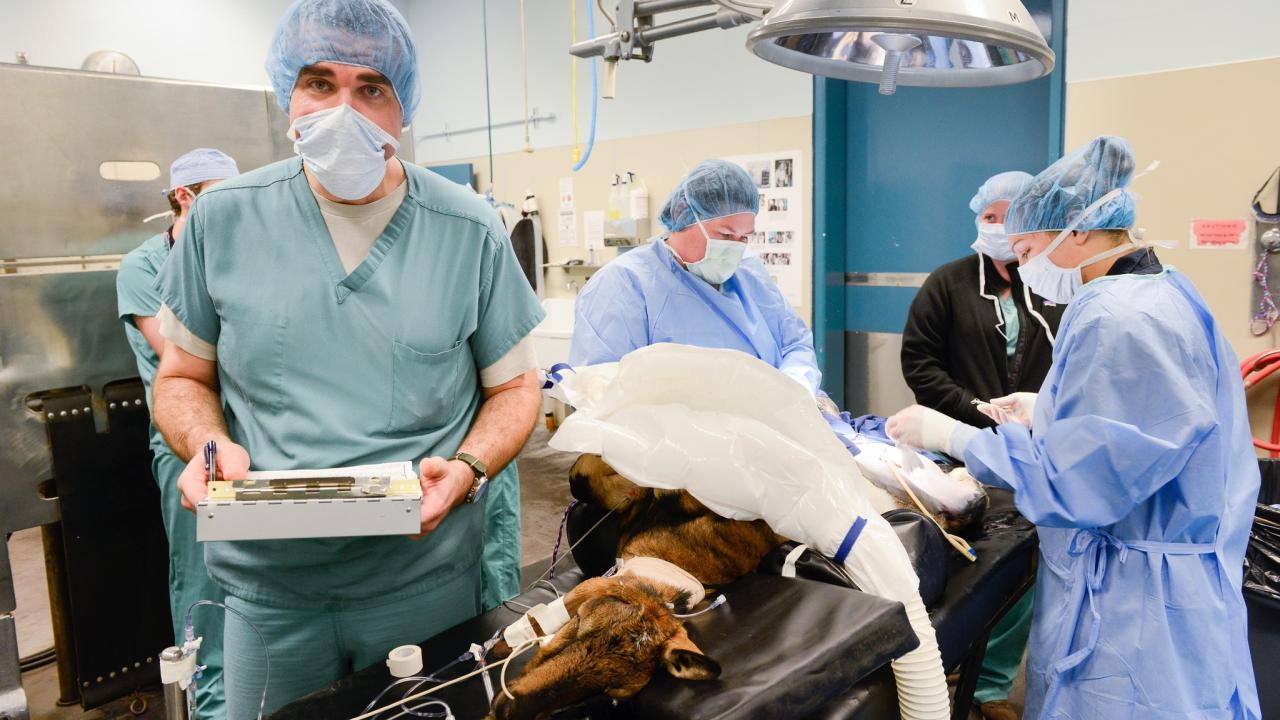
Five Insights from the National Veterinary Entrepreneurship Academy
UC Davis recently wrapped up its National Veterinary Entrepreneurship Academy, which joined faculty, graduate students and researchers from veterinary schools across the world with leaders from academia and the corporate world who have experience taking innovations to market.
If there was one overarching theme from the speakers, it was how important it was for new entrepreneurs to have both passion and persistence. Or as Dr. Linda Black, chief executive officer of animal health biotechnology company Gallant, put it: “Jumping off to become an entrepreneur takes a lot of self-trust and knowing what you want to accomplish with your life."
While it’s impossible to distill five days of learning and mentoring into a single article, here are five helpful takeaways from the academy:
- There’s no single path to commercialization. Dr. Natalia Vapniarsky Arzi, a UC Davis faculty member with experience licensing technology to corporations, points out that you shouldn't make assumptions about how intellectual property needs to be managed or published. "You may not even need to patent your discovery or hold off on publishing it to commercialize it," she says. All research universities should have intellectual property personnel and resources for faculty to find out the best options to keep the commercial potential of their discoveries intact and marketable, and the earlier you check in with them, the more options you'll have available to you.
- Your team makes the dream. Dr. Sharon Stevenson, founder and managing director of Okapi Venture Capital says that if you are pitching a startup to a venture capital firm, you should ensure that you've put the best team possible together. "I'm always looking for a great idea with a great team," Stevenson says, "but if I had to make a choice I'd take a great team with an okay idea over a great idea with a mediocre team." You can check with your university innovation office to find out what the key positions are and how to assemble or make plans for how to fill those positions.
- Know the process. Tamara Fraizer, a partner at Squire Patton Boggs who specializes in intellectual property, says, “If you understand the life of a patent application, you will understand how to manage a patent application, and more importantly, a patent portfolio.” Although you should have professionals advise you on securing and protecting your IP, it’s still critical to familiarize yourself with general information on the topic in order to know your options and prevent potentially costly mistakes. “Timing is everything,” Fraizer says. Your university innovation office can connect you with resources to educate yourself on IP management.
- Lifecycle over launch. Dr. Jennifer Ogeer, vice president of medical affairs at Antech Diagnostics, discusses how important it can be for new entrepreneurs to not get lost in just getting their innovation to market. “A disciplined approach to the lifecycle of a product is important,” she says. By focusing on every stage of the new product development process and lifecycle management from ideation to launch to customer retention, you’ll generate more revenue, learn more from your customers and create a durable business. "Testing your product with real users proves invaluable when assessing market validity, and always keep the voice of the customer in every stage to remain relevant and provide the most value to those who purchase your product or service,” Ogeer says.
- Innovation naturally faces resistance. Dr. Kerri Marshall, the executive vice president of strategic partnerships for Aivet pet telehealth platform and a Veterinary Innovator of the Year awarded by the North American Veterinary Community, quoted Nobel Prize winner Maurice Maeterlinck in her presentation: “At every crossroads on the path that leads to the future, tradition has placed 10,000 men to guard the past.” Marshall encouraged participants to be persistent, make strategic allies and arm themselves with as much knowledge as possible. The headwinds are strong, but the rewards can be worth it.
The National Veterinary Entrepreneurship Academy is produced annually by the School of Veterinary Medicine and the Institute for Innovation and Entrepreneurship at UC Davis and was sponsored by Boehringer Ingelheim Animal Health and Royal Canin. To be added to an alert list for the 2022 academy, email ndpeterson@ucdavis.edu.
